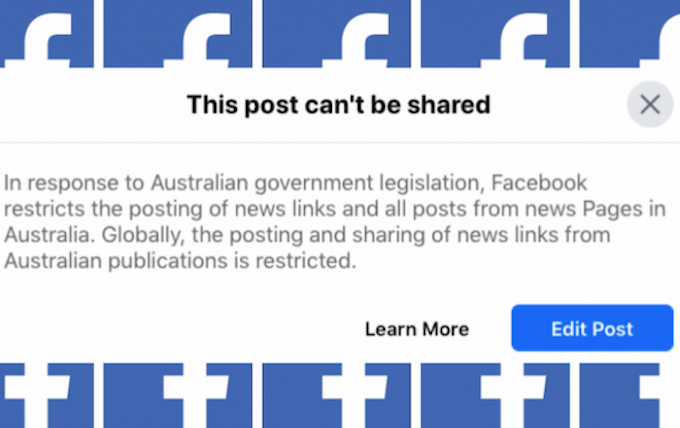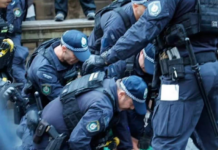
Reporters Without Borders (RSF) has condemned Facebook for carrying out its threat to block the sharing of its journalistic news content in Australia in retaliation to the federal government’s plan to make platforms pay media outlets.
The ban impacts on the reliability and pluralism of the information available on this social media platform, said the Paris-based global media watchdog.
“No posts yet” is the message that the Facebook pages of the Australian media have been showing since February 17, says RSF in a statement.
- READ MORE: Facebook to reverse ban on Australian news sites after backlash
- Other Media Bargaining Code stories
This blackout is deliberate. Facebook announced on February 17 that it would “restrict publishers and people in Australia from sharing or viewing Australian and international news content.”
The decision was taken in reaction to the Australian government’s proposed News Media Bargaining Code, under which platforms such as Facebook and Google would have to pay Australian media outlets for the content they display.
Facebook’s response, called the “nuclear option” by The Australian daily newspaper, is radical.
Australian media can no longer share or post content on their Facebook pages, while users in Australia can no longer see or share links to news on the platform, whether Australian or international news.
Facebook ‘abusing dominant position’
“Facebook is abusing its dominant position to defend its economic interests at the expense of online news reliability and pluralism,” said Iris de Villars, the head of RSF’s Tech Desk.
“Regardless of the proposed law being discussed, these restrictions affect the ability of Australian citizens to access reliable and independent information on this platform.
“We urge Facebook to reverse this decision, which totally contradicts its pledges to combat disinformation.”
To implement these restrictions, Facebook has been using machine-learning tools to identify news content publishers but this has had the collateral effect of blocking other kinds of content, including the pages of several NGOs such as RSF, public health bodies, governmental institutions and even entities that handle emergencies.
Facebook has not as yet responded to RSF’s questions.
Asia Pacific Report and Pacific Media Watch collaborate with Reporters Without Borders.










































